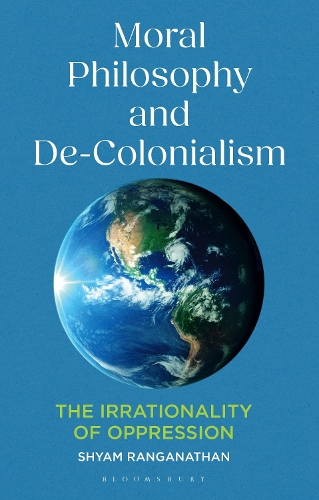
Moral Philosophy and De-Colonialism: The Irrationality of Oppression
(Hardback)
Available Formats
Publishing Details
Moral Philosophy and De-Colonialism: The Irrationality of Oppression
By (Author) Dr Shyam Ranganathan
Bloomsbury Publishing PLC
Bloomsbury Academic
2nd April 2026
United Kingdom
Classifications
Tertiary Education
Non Fiction
Ethics and moral philosophy
Ancient Greek and Roman philosophy
Yoga (as a philosophy)
Physical Properties
Hardback
240
Width 138mm, Height 216mm
Description
Why have moral philosophers largely ignored colonialism Shyam Ranganathan tells the story of moral philosophy and colonialism and reveals the benefits of drawing from a colonized tradition to a create a rigorous logic-based ethics.
This is a timely exploration of the the ways in which western colonialism has structured moral theorizing to insulate itself from criticism. In his account of the domination of the European tradition and the suppression of questions of its colonialism, Ranganathan covers the evolution of metaethics, normative ethics and applied ethics in ancient European, Chinese and Indian traditions of philosophy. We see the presence of white supremacy in the writings of J.S. Mill, Marx and Engels and the importance placed on autonomy and sovereignty in Hobbes and Kant. The European influence of interpretation on our peer review of historical philosophy is evident throughout.
Using South Asia as an example Ranganathan examines how colonizers are able to erase moral philosophical history and redefine cultures as religions, judged in terms of their conformity to, or deviation from, the western tradition, which is treated as secular. His acknowledgment of Yoga as a basic ethical theory introduces us to thinking that recognizes persons as a diverse group, traversing sex, gender, race, sexual orientation, and species.
Through this analysis of colonized traditions and ethics, Ranganathan is able to de-colonize moral philosophy by looking outside the colonizing tradition. If we want sophisticated and inclusive ways of thinking about how to live we must turn towards indigenous thought.
Author Bio
Shyam Ranganathan is in the Faculty of the Department of Philosophy and York Centre for Asian Research at York University, Canada.
